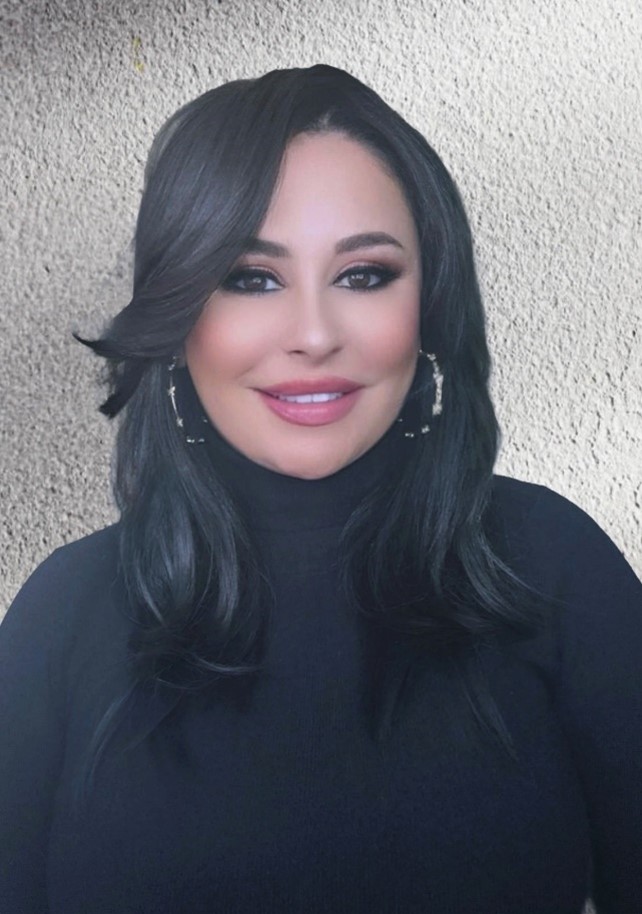Mara Nolasco, LCSW-CP
Mara Nolasco is a multilingual (English/Spanish/Portuguese) Licensed Clinical Social Worker (LCSW-CP). She graduated from Capella University with a Bachelor’s degree in Psychology and Fordham University with a Master’s degree in Social Work. Mara is nationally certified as a Trauma-Focused Cognitive Behavioral Therapy (TF-CBT) therapist but also utilizes concepts of Dialectical Behavior Therapy (DBT), Cognitive Behavior Therapy (CBT), and Polyvagal Theory. She has provided trauma-informed psychotherapy to children (3 and up), adolescents, and adults. Specializing in a diverse range of mental health concerns, she concentrates on helping clients navigate and overcome challenges related to trauma, depression, anxiety, addiction, grief/loss, ADHD/ADD, relationship issues, and personality dysfunction.
Central to Mara’s approach is the belief that the therapeutic process is a collaborative alliance, with clients considered experts in their own lives. As a Trauma-Informed therapist, she possesses a unique perspective that enriches her work with clients facing past and current traumas. Mara’s approach is holistic, focusing not only on the immediate symptoms but also the underlying issues that contribute to clients' struggles. She prioritizes creating a safe and nonjudgmental space where clients can explore thoughts, feelings, and experiences freely. By fostering an environment of acceptance and understanding, she encourages clients to engage with trust and confidence.

Contact
Address:
110 Traders Cross
Bluffton, SC 29909-4637
Email:
mnolasco@behavioralwellnessgroup.com
Phone:
Toll Free 888-996-9374 Ext. 873
Direct Line: 440-368-3533 Ext. 873
Fax:
440-565-2379
Articles
Pressing the Pause Button: Managing Distress with Mindfulness
In the hustle and bustle of modern life, we often find ourselves swept away by the currents of stress and anxiety. It can feel like we’re caught in a whirlwind in these moments, reacting instinctively rather than responding thoughtfully. However, there is a simple yet effective tool at our disposal: the power of pressing the pause button. By consciously choosing to pause, we can shift from a reactive state driven by our primal instincts to a more mindful approach rooted…
Winter 2024 Seasonal Letter
Best Wishes to you and yours as we enter the New Year! The Behavioral Wellness Group remains committed to you and the care of your clients in this New Year! Thanks to your ongoing confidence in us, BWG has increased our number of therapists and services in other states (see website above for details) to meet the demands of our clientele. Our programs are CARF Re-Accredited for the maximum allowable duration which is a testament to our commitment to meeting…
Becoming More of a Positive Person In Today’s World
We often hear about how we need to engage in physical exercise in order to be healthy. There are many options for physical exercise. We can do aerobic exercise to increase breathing and heart rate; there are anaerobic options which strengthen muscles; flexibility exercises stretch muscles and help keep us limber; balance exercises are very important to prevent falls, especially as we age. All of these activities strengthen and reprogram specific parts of the brain. However, how often do we…
Stress and Anxiety Management the DBT Way
Anxiety and stress appear to be the next pandemic. I see so many people who are anxious, overwhelmed, edgy, panicky, full of worry, and always tense. If any of these words describe you and leave you with a constant feeling of uneasiness to all-out panic, you could be suffering from poor stress management. Dialectical Behavioral Therapy, or DBT was developed by Marsha Linehan in the 1970s. She had her own experiences with mental illness that perhaps gave her a unique…
Coping with Grief during the Holiday Season
“What am I going to do if something reminds me of Grandpa?” “Who is going to help me decorate the Christmas tree this year?” “I don’t have the energy or the desire to do the things I usually do during the holidays.” If you are someone who has lost a loved one, these may be some of the thoughts that are running through your mind. Although the holidays are usually associated with happiness, joy, smiles and laughter for most individuals,…
When Seasonal Changes Affect Your Moods
Seasonal Affective Disorder How does one distinguish between winter blues and more serious conditions? Many feel sluggish or down during Fall and Winter months. The winter blues are pretty common. If this sadness is profound, it may be a sign of Seasonal Affective Disorder (SAD). SAD is a form of depression which results from decreased light during the darker Fall and Winter months. With decreased sunlight, our internal biological clocks are thrown off, and it feels as though everything is…

